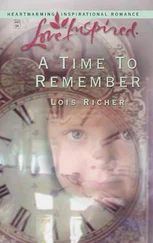Alexander Todd - A Time to Remember
Здесь есть возможность читать онлайн «Alexander Todd - A Time to Remember» весь текст электронной книги совершенно бесплатно (целиком полную версию без сокращений). В некоторых случаях можно слушать аудио, скачать через торрент в формате fb2 и присутствует краткое содержание. Город: Cambridge, Год выпуска: 1983, ISBN: 1983, Издательство: Cambridge University Press, Жанр: Химия, Биографии и Мемуары, на английском языке. Описание произведения, (предисловие) а так же отзывы посетителей доступны на портале библиотеки ЛибКат.
- Название:A Time to Remember
- Автор:
- Издательство:Cambridge University Press
- Жанр:
- Год:1983
- Город:Cambridge
- ISBN:0 521 25593 7
- Рейтинг книги:3 / 5. Голосов: 1
-
Избранное:Добавить в избранное
- Отзывы:
-
Ваша оценка:
- 60
- 1
- 2
- 3
- 4
- 5
A Time to Remember: краткое содержание, описание и аннотация
Предлагаем к чтению аннотацию, описание, краткое содержание или предисловие (зависит от того, что написал сам автор книги «A Time to Remember»). Если вы не нашли необходимую информацию о книге — напишите в комментариях, мы постараемся отыскать её.
A Time to Remember — читать онлайн бесплатно полную книгу (весь текст) целиком
Ниже представлен текст книги, разбитый по страницам. Система сохранения места последней прочитанной страницы, позволяет с удобством читать онлайн бесплатно книгу «A Time to Remember», без необходимости каждый раз заново искать на чём Вы остановились. Поставьте закладку, и сможете в любой момент перейти на страницу, на которой закончили чтение.
Интервал:
Закладка:
The highlight of the Australian trip was the visit paid by a group of symposium participants to the Australian-mandated territory of Papua-New Guinea. This trip was arranged by the Australian government and the Commonwealth Scientific and Industrial Research Organisation (CSIRO) to give a selection of overseas delegates the opportunity to make some assessment of the territory's potential, and to comment, if we wished, on what the Australian authorities were doing there. The group - about fifteen to twenty in all, including our Australian hosts -was multinational, and Bob Woodward and I were fortunately, if not very surprisingly, included. It was a memorable trip to a fascinating country of jungle, mountain and swamp, with the climate up on the plateau beyond the Owen Stanley Range so beautiful, that I could understand why we found, living in Wau, two retired bankers and their wives from Europe; having set out on a trip round the world, they had found Wau so near to perfection that they simply gave up circumnavigating the globe and settled down there. After spending a couple of days in the Port Moresby area, we flew up in an ex-army DC3 through a high pass in the Owen Stanley Range to Wau - not a large place by world standards, but the headquarters of the local District Commissioner, and the southernmost point reached by the Japanese army in the last war. The grassy airstrip on which we landed was quite markedly sloping; so much so, that, on touching down at the lower end (where, incidentally, the Japanese had been finally halted), the pilot had to switch on power again in order to get our plane up to the top of the runway, where the somewhat rudimentary airport buildings were located. I remember that, while we were thus engaged in struggling up the hill, I observed a group of two or three local inhabitants clad apparently in stripes of blue, white, and red paint, with little or nothing else; they were leaning on spears, and their hideously painted faces were further adorned by what appeared to be bones through their noses, and a collection of rings or discs suspended from the septa thereof. My immediate reaction was to think how thoughtful it had been of the District Commissioner to have a welcoming party specially dressed up to welcome the guests. However, as I drove in the Commissioner's jeep from the airport, I quickly realised that the men on the airport were not specially dressed (or undressed) for the occasion - all the local inhabitants about the place were in a similar state. Subsequently moving around the area and visiting various villages I came to realise that this was the normal attire of these stone-age people. We did see them in all their finery on one day when the Commissioner, having heard that a big tribal feast or sing-sing was being held in one area, persuaded the local chief, whom he knew, to let us come along to the village which had been built specially for the occasion; there we saw the tribal groups from surrounding villages assembling for the feast - all highly painted, with the warriors wearing their headdresses of bird of paradise plumes and performing elaborate formation dances, while the women and children sat around chanting and preparing mountains of food. The New Guinea Highlands can be described as a real man's country. In the Wau district each tribe did one day's work per month on the local roads for the government; on the occasion I saw this day of labour, all the work was being done by the women and children, while the men of the tribe, in their full war-paint, stood around in groups smoking and leaning on their spears. Wau was really a remarkable place. Some miles up a rough road, following the course of a stream in a nearby mountain valley, there was a clearing in the jungle in which were several buildings or huts, and in which the stream had been diverted into artificial channels, obviously used for gold-washing. Most of the huts were made out of what looked like flattened biscuit tins - a common construction material in that part of Papua - but one was more substantial, being solidly built of wood and stone. In it lived an elderly Scotsman, known locally (and inevitably, I suppose) as Mac, quite alone, save for the thirty or so Kuku-kuku tribesmen and their families who lived in the clearing and were his employees and bodyguard. The women did his domestic chores, while the men washed for gold in the stream. Mac himself told me he had been a gold miner who moved on from one gold rush to another; he moved from Alaska to join the New Guinea gold rush, and, when the latter waned, he decided that perhaps the time had come to retire. What better place was there to do so than the hills about Wau? Here he could have peace with his group of native 'boys', and a pleasant part-time occupation washing for gold in the stream. It seemed to work well enough; I was told by the Commissioner that, each month, Mac came down to Wau to bank his gold, get uproariously drunk for a couple of days, and be carried back up to his home by his Kuku-kuku 'boys' - members, I should add, of the most notorious cannibal tribe in the area. It was said locally, that the proceeds from his gold were sent regularly to his unmarried sister in Dundee, who was getting something like £10 000 p.a. from this source. Mac I found surprisingly well informed, although a month or so behind with the news; he abhorred radio, but was a subscriber to the Weekly Scotsman and The Economist, which he received regularly, and read from cover to cover. During our visit to him we had a hilarious ceremony (apparently planned in advance, but without my knowledge) at which the Doctorate of Science of the (non-existent) University of Wau was conferred upon me honoris causa by the self-styled Chancellor and Vice-Chancellor in the guise of the District Commissioner and his assistant, wearing as robes flowered dressing gowns borrowed from their wives. Mac and his 'boys' formed a suitable arc behind the 'Chancellor' as the 'Senate', while I was made to wear, as academic dress, a very fine beaten bark cape which, I was assured, had belonged to a gentleman who had been jailed a fortnight before for eating his wife.
From Wau we went on through Bulolo and Lae, and saw something of the timber industry and the successful efforts being made to develop coffee and cocoa culture. The whole trip was a very jolly affair, punctuated by many amusing incidents, but also making me, at least, realise the potential of this remarkable country coupled, I confess, with a considerable feeling of unease about the future of the large population of rather child-like stone-age people, who were clearly about to be thrown all too quickly into the maelstrom of the twentieth century. The New Guinea party returned to Sydney, and there dispersed, most members returning to Europe or America, while I went on to pay my first visit to New Zealand, a country in which, like Australia, I had a number of friends - some like Professor 'Bob' Briggs of Auckland (who had been with me on the New Guinea excursion) and J. S. Watt, fellow-students from Oxford days, and others who had been my own pupils in Cambridge. I flew from Sydney to Christchurch, stopped there for a couple of days and gave a lecture, then drove southwards with my former student R. E. Corbett, visiting Mount Cook on the way to Dunedin and the University of Otago, where he later became Professor of Chemistry. From there I flew directly to Auckland, where I was joined by my wife; together we then drove down through the North Island to Wellington, our final port of call in New Zealand. It being September the weather was cold and rather broken, especially in the South Island, but this did not prevent me from enjoying the great natural beauty of New Zealand. I confess, however, that I was not in any way attracted by it as a place in which to live. The cities and their inhabitants seemed very provincial in their outlook, and I, for one, was conscious all the time of being remote and rather shut off from the world. I have often had this curious feeling of remoteness in the Australian outback, but only in Tasmania and in New Zealand have I experienced it in substantial towns.
Читать дальшеИнтервал:
Закладка:
Похожие книги на «A Time to Remember»
Представляем Вашему вниманию похожие книги на «A Time to Remember» списком для выбора. Мы отобрали схожую по названию и смыслу литературу в надежде предоставить читателям больше вариантов отыскать новые, интересные, ещё непрочитанные произведения.
Обсуждение, отзывы о книге «A Time to Remember» и просто собственные мнения читателей. Оставьте ваши комментарии, напишите, что Вы думаете о произведении, его смысле или главных героях. Укажите что конкретно понравилось, а что нет, и почему Вы так считаете.










